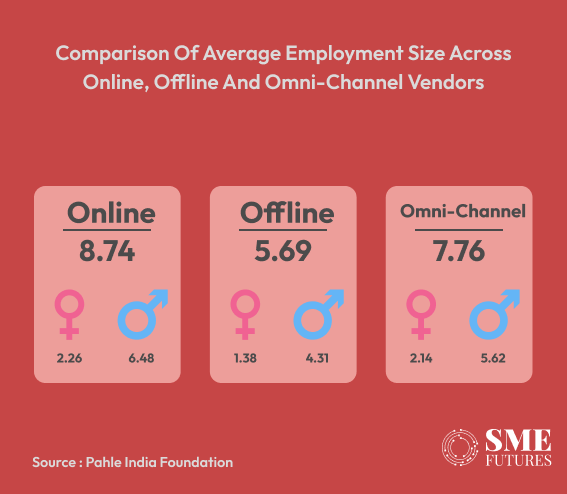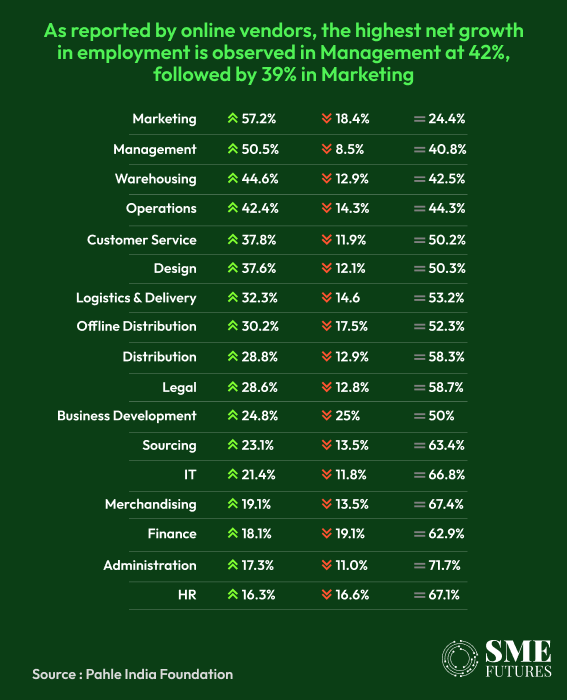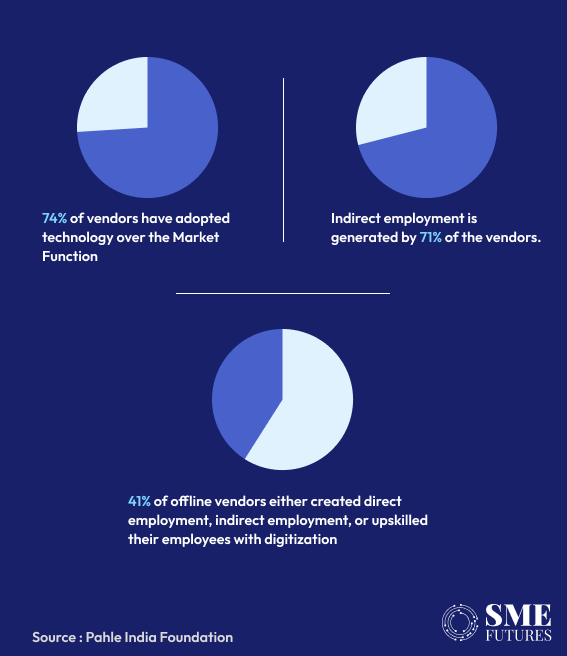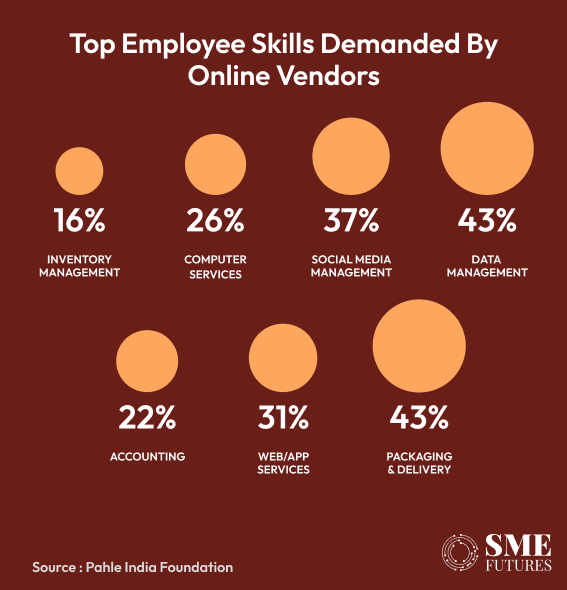India’s e-commerce sector has grown exponentially in the last decade. Although it currently comprises just 7.8 per cent of total retail sales in 2022, its rapid expansion cannot be underestimated. The sector is projected to grow at a CAGR of 27 per cent between 2018 and 2030, driven by improvements in consumer welfare and employment growth. This growth trajectory indicates that e-commerce is not just a passing trend—it’s here to stay. But what does this mean for employment and consumer welfare in India? A recent study by the Pahle Foundation delves into the net effects of this booming industry, revealing surprising insights that every Indian consumer and job seeker needs to understand. Let’s explore the 5 ways in which e-commerce is reshaping the job landscape in India.
Employment: A double-edged sword?
E-commerce has proven to be both a job creator and a disruptor. While it opens new avenues for employment in logistics, warehousing, digital marketing, and tech development, it has also led to a decline in traditional retail jobs. The study suggests that while e-commerce is a net job creator, the nature and quality of these jobs vary significantly.
New jobs are being created in high-growth areas such as data analytics, software development, and digital marketing, which are essential for e-commerce businesses to thrive. However, there is also a displacement effect as traditional retail jobs, like cashiers and store assistants, are becoming less common. The key takeaway is that while e-commerce contributes positively to job creation, there’s a paradigm shift in the skills required.

Employment growth in new territories
E-commerce is no longer limited to metro cities; it is rapidly expanding into tier 3 and 4 cities and rural areas, creating jobs where they are needed the most. Each e-commerce vendor employs about 9 people on average, with 2 of them being women, compared to 6 employees in offline retail settings where only 1 is a woman.
Based on National Sample Survey (NSS) data, about 1.76 million retail enterprises in India are engaged in e-commerce activities. The report estimates that these online vendors generate approximately 15.8 million jobs, including 3.5 million for women. This shows a notable shift not just in employment numbers but also in inclusivity, empowering more women to enter the workforce. The highest net growth in employment is in management roles (42 per cent), followed by marketing (39 per cent), indicating a trend towards more specialised job roles.

Vendor technological upgradation and its impact
The e-commerce ecosystem has spurred technological upgradation across various retail functions, coexisting with both direct and indirect job creation. According to the study, functions that experience the most technological upgradation, such as marketing and management, are also those with the highest net employment growth.

For instance, 73 per cent of vendors report that tasks under management have become more digitally enabled, while 63 per cent outsource these tasks. Similar trends are observed across other functions like HR, administration, and merchandising, where a significant number of vendors outsource work instead of hiring full-time employees. This not only highlights indirect employment generation but also the increasing importance of digital skills in the workforce.
Only 17 per cent of them state that technological adoption replaced employees, while 42 per cent saw no change. Instead of replacing jobs, therefore, technology has become a pre-requisite for many new jobs.
Rise of new roles and skills
With the shift to e-commerce, there is a rising demand for new skill sets. Skills like data management, social media management, website and app development, packaging and delivery, and inventory management are now in high demand. Approximately 40% of vendors have created new job roles since moving online, which underlines the dynamic nature of the e-commerce industry.

Notably, vendors selling on top platforms report a noticeable increase in the number of job roles. As businesses continue to embrace digital transformation, new job titles are constantly emerging, indicating a trend towards more specialized and tech-savvy positions. This shift is particularly important for job seekers who are looking to adapt and remain competitive in the job market.
Changing consumer behaviour fuels employment
Another interesting insight from the study is that consumers in tier 3 cities are now spending more on online shopping than their counterparts in bigger cities. A higher percentage of these consumers spend more than Rs 5,000 per month on e-commerce, driving the need for a stronger e-commerce workforce in these areas.
This change in consumer behaviour is not just driving demand for more delivery personnel, customer service representatives, and local fulfilment centres, but it is also pushing vendors to up their game in terms of digital marketing, customer engagement, and supply chain management. This has created a ripple effect, where increased consumer spending fuels the demand for more specialised jobs.
The net impact of e-commerce in India is a mixed bag—while it offers significant benefits like job creation in new sectors, empowerment of women, and technological upgradation, it also presents challenges for traditional employment. As India continues to move forward with its digital economy, balancing these impacts will be crucial. The key is to ensure that the growth of e-commerce benefits everyone—from the job seeker in a tier 3 city to the consumer in a metro—by fostering an inclusive and adaptable workforce.
E-commerce is not just transforming shopping; it’s reshaping careers, creating new opportunities, and redefining the Indian job market. As the digital economy grows, those who adapt to its demands will be the ones who thrive in this rapidly evolving landscape.











